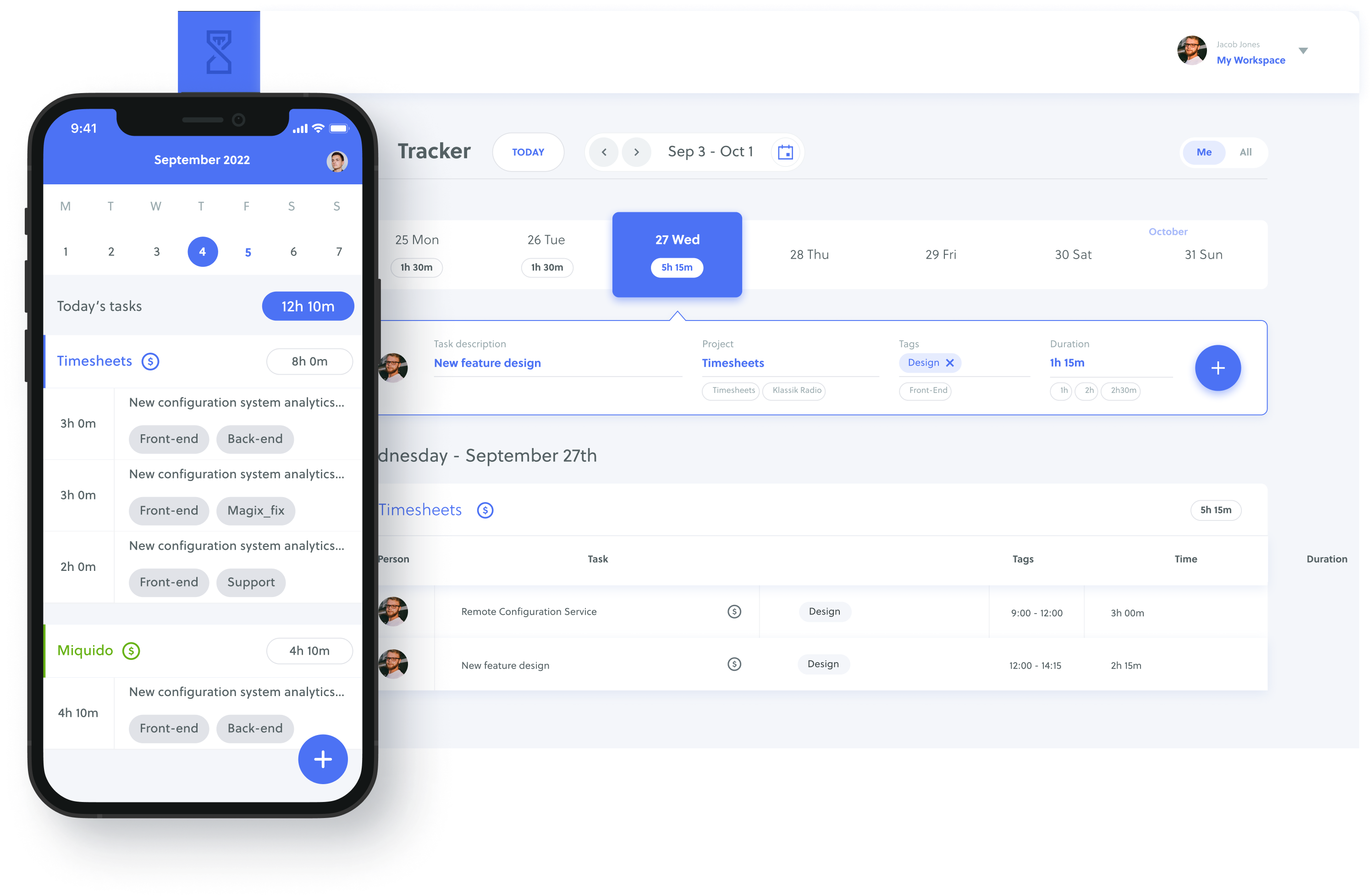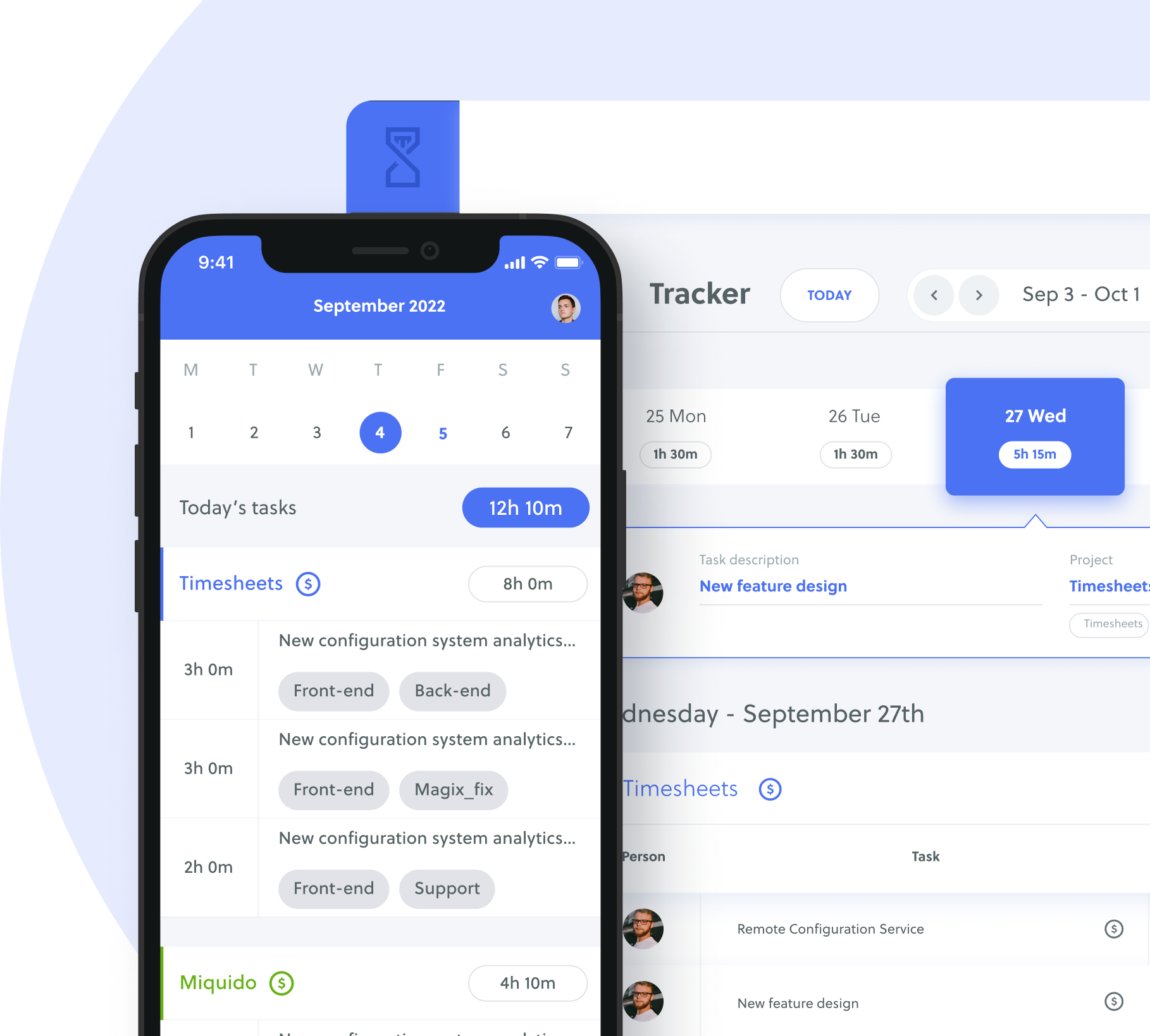Have you ever found yourself stuck in a rut, working hard day after day but never seeming to make any long-term progress? Is it your friends and colleagues who keep getting promoted and moving on, while you’re left feeling trapped at your current level? If so, it may be time to introduce the 5-hour rule into your daily routine.
The 5-hour rule has been adopted by successful individuals around the world, including Bill Gates, Oprah Winfrey, and Mark Zuckerberg. But what exactly is the 5 hour rule?
How can you put this into action in your own life? More importantly, how do we spend our days as individuals? How can a 5-hour rule make our lives better? Quidlo can answer all of your inquiries. Continue reading to find out more!
Table of Contents
How We Spend a Typical Day in Our Lives?
The median lifespan of a human on earth is 79 years or 28,835 days. On average, people spend a third of their lives asleep. However, this differs greatly among different countries. Japan, for example, averages just under 6.5 hours of sleep per night. According to the Centers for Disease Control and Prevention, 35% of Americans sleep less than 7 hours on average. The Netherlands came out on top, getting an average of 8+ hours of sleep per night.
But what do we do with the remaining 16+ waking hours each day? Most of us can probably guess our top activity – work. According to the OECD Better Life Index, employed adults in countries like Japan, Germany, and the United States spend about 1,700 hours per year on paid work.
Other common daily activities include taking care of household chores, personal care such as eating and bathing, leisure activities like watching TV or playing sports and spending time with friends and family.
Of course, how we choose to spend our days can vary greatly based on individual interests and priorities. Finding a happy medium between work and leisure is crucial to a fulfilled life, but there should also be time for personal development. But how do we do that? Here comes the 5 hour rule!
Everything You Need to Know About the 5-Hour Rule
Are you constantly running from one task to the next, but never really checked anything off your to-do list? Are you looking for a way to improve yourself and your skills without overwhelming your already-packed schedule? Then it’s time to try the 5 hour rule.
This rule involves dedicating at least one hour a day, or five hours a week, to self-improvement and learning something new. Imagine what kind of progress you could make in a year if you dedicated just five hours every week to improving yourself and your skills.
While an hour a day may not seem like much, consistently applying the 5 hour rule over time can have a significant impact on your development as an individual. So why not give it a try and see where it takes you? The possibilities are endless.
The 5-hour Rule – How to Spend Your Time?
Have you ever found yourself wishing there were more hours in the day to accomplish all of your goals and dreams? While we sadly can’t add any more time to the clock, one simple strategy can help maximize your productivity and improve your skill set: the 5-hour rule. This principle, popularized by entrepreneur and author Michael Simmons, involves dedicating at least five hours each week to deliberate practice and learning.
However, a little more “flesh on the bones” has been added to the rule throughout time. Apart from the obvious recommendation to devote one hour per day, or five hours per week, to study or practice, the “5-Hour Rule” also entails the following three steps:
Reading
The first step is “Reading.” The old saying “You are what you read” definitely rings true for successful individuals. These high achievers devour books, constantly seeking out new information and perspectives on the world. In fact, according to Inc.com, 60% of successful CEOs read at least one book per week, with nearly 20% reading more than one book per week. It’s no surprise that reading is the first “bucket” in their daily routine – filling their minds with valuable knowledge and allowing them to stay ahead of the game.
During one of his podcasts, brain trainer and speed-reading coach Jim Kwik made the following statement: “I checked Amazon to see what the average word count of books was, and it came to roughly 64,000. Taking everything into account, we can assume that the typical reader’s speed is 200 words per minute. The average person needs roughly 320 minutes, or about 45 minutes a day, to read a book in a week. That brings it closer to the realm of possibility, ” he said.
Maybe you hate picking up a book or simply don’t like to read traditional printed material – that’s where audiobooks and online courses come in. These days, it’s easier than ever to soak up knowledge on the go by listening to an audiobook on your commute or watching podcasts during lunch. Even Forbes listed listening to audiobooks as a good source of learning. So even if you’re not ready to make reading a daily habit, there are plenty of ways to still meet the “5 hour rule” and keep your brain sharp and flourishing.
Reflecting
In today’s fast-paced society, it can be tempting to constantly consume new information without taking the time to digest it. But let’s face it, gulping down knowledge without chewing on it is no different than scarfing down a Big Mac – sure, you’re technically “feeding” your brain, but how much are you actually retaining? So before chowing down on yet another article or podcast episode, slow your roll and chew things over first.
Taking the time to pause, reflect, and ruminate on new information helps really sink the knowledge into your brain for long-term retention. You can’t just wolf down the knowledge and expect it to stick – instead, savour the new information and let it marinate in your mind before moving on to the next tasty morsel. A little bit of digestion goes a long way when it comes to learning and retaining information. Bon appétit!
Experimenting
Once you’ve taken the time to educate yourself and think about how it relates to your career or business, it’s time to put that newfound knowledge into action. This is where the true value of the 5 hour rule comes in – experimentation. Just reading about something and thinking about it won’t bring any tangible results. But by testing out new ideas and strategies inspired by what you’ve learned, you can see real growth and progress in your professional life. By testing out what we have learned, we can not only confirm our understanding of the concept but also discover new approaches or solutions that work best for us.
Self-improvement vs Productivity
When it comes to self-improvement versus pure productivity, it’s important to remember the tortoise and the hare. Sure, the hare might have been able to finish all his tasks faster, but in the end, it was the slow and steady tortoise who achieved success. The same can be said for self-improvement versus productivity.
Focusing solely on completing tasks as quickly as possible might seem like a good strategy in the short term, but investing time and energy into bettering oneself can bring long-term dividends.
Personal growth allows us to adapt and improve in all areas of our lives, not just at work or school. It allows us to troubleshoot problems effectively and think outside of the box when faced with challenges. So while being productive is great, don’t forget to work on self-improvement as well – it’ll pay off in the end.
Benefits Of Spending Time On Self-Improvement
Sure, being productive and getting stuff done is important. But sometimes, it’s worth taking a step back and focusing on self-improvement instead. Here’s why:
- By focusing on self-improvement, we can create sustainable habits that lead to long-term success, rather than short-term gains through pure productivity
- It helps prevent burnout by promoting balance and mindfulness in your work habits.
- It can lead to a more fulfilling career by helping you align your actions with your values and long-term goals.
- It allows for growth beyond solely completing tasks, allowing room for innovation and creativity.
- Learning new skills and personal development opens up opportunities for career advancement and chances to learn from others.
- It sets a positive example for those around you, inspiring them to prioritize their own self-improvement journey.
So go ahead, take a break from that never-ending to-do list and focus on improving yourself. Trust us, it’ll pay off in the long run.
Why Should You Use The 5-hour Rule?
The 5-hour Rule involves setting aside at least one hour a day to focus on learning and personal development. This may seem like a small commitment, but studies have shown that consistent, deliberate practice can significantly improve skills over time. But what are the benefits of this seemingly arbitrary time period? Let’s find out!
- Personal Growth
Setting aside a specific block of time forces you to prioritize your personal growth above other distractions. It’s easy to get caught up in busy work or procrastination, but with the 5-hour rule in place, you know that those 5 hours are reserved for learning and self-improvement.
- Consistent progress
Dedicating a regular amount of time allows for consistent progress rather than sporadic bursts of productivity. By consistently working on improving yourself, you can quickly start building important skills and knowledge.
- New perspectives
Taking regular breaks from your usual routine can help spark creativity and prevent burnout. It’s easy to get stuck in the same thought patterns, but taking time for self-improvement opens up new possibilities and perspectives.
- Improved Relationship Skills
Continuously learning and growing can have a positive impact on both your career and personal relationships. You’ll be able to handle challenges more effectively and bring new ideas to the table at work, while also giving yourself the tools to navigate obstacles in your personal life.
- Increased Motivation and Drive
Focusing on self-improvement can help increase motivation and drive. When you see yourself making progress toward your goals, it can give you the boost you need to keep pushing forward.
- Long-Term Benefits for Physical and Mental Well-Being
Last but not least, investing in yourself can have long-term benefits for both your physical and mental well-being. Continuously learning new things can improve cognitive function while also providing opportunities for physical activity, such as joining a sports team or going for a hike.
So what are you waiting for? Start actively investing in yourself with the 5-hour rule today!
Famous People Who Use The 5-hour Rule
Are you looking for a surefire way to stand out among your colleagues and outperform the competition? Look no further than the 5-hour rule. Many successful individuals adhere to this rule, carving out at least five hours each week for continuous learning and personal development. And the numbers don’t lie – Studies have shown that those who engage in deliberate practice on a regular basis significantly outperform their peers in cognitive ability and job performance.
From NBA star LeBron James to media mogul Mark Zuckerberg, a slew of famous faces have one productivity secret in common: the 5 hour rule. These successful individuals make it a point to dedicate at least five hours a week to deliberate learning and self-improvement. Let’s take a closer look at other well-known persons who have relied on the ‘5-Hour Rule’ to improve themselves.
Oprah Winfrey
Oprah Winfrey has achieved success in the entertainment industry and beyond, and she credits much of her success to a “Continuous Drive To Achieve Self Improvement”. In her acceptance speech for the Global Humanitarian Award, she remarked, “I grew up in Mississippi with lofty goals even though it was frowned upon for black kids to have such aspirations. Books provided me insight into a world beyond the front porch of my grandmother’s shotgun house and the ability to imagine possibilities beyond what was possible at the time: beyond economic and social realities,… beyond false ideas and prejudice that clouded the brains of so many men and women of the time.”
Paul C. Brunson was the co-host of the show, Lovetown, USA, on the Oprah Winfrey Network. Brunson said on record that Oprah Winfrey “dedicate substantial time and resources to self-development.” By constantly expanding her knowledge and skills, Oprah proves that successful individuals are never done learning and growing.
Bill Gates
Have you ever wondered how successful people like Bill Gates manage to stay at the top of their game? It turns out, a big part of it has to do with the way they approach learning and self-improvement. Gates famously follows the “5 hour rule,” where he makes sure to dedicate at least five hours per week to reading and learning about new things, whether it’s a book or a course.
Bill Gates reads 50 books a year and considers himself an active reader. The New York Times reported him as saying, “Ever since I was a young boy, it has been one of my primary means of education. These days, I spend a lot of time going to interesting events, talking to scientists, and studying from online lectures. Reading is still the primary way I take in new information and evaluate what I’ve learned.”
Jack Ma
The 5 hour rule has allowed Jack Ma to stay ahead in an ever-changing business world and lead Alibaba to become one of the largest companies in the world. He learns everything from literature to meditation to juggling – whatever sparks his interest and curiosity in that moment. By constantly seeking out new ideas, Jack Ma ensures that he’s constantly growing and evolving as a person and as a leader.
Ben Franklin
You may know Ben Franklin as a founding father, diplomat, and inventor, but did you know that he also considered himself a lifelong learner? In fact, he followed something called the “five hour rule,” in which he dedicated at least one hour each day to deliberate learning. He believed that this time should be used for reading, writing, and critical thinking about various subjects.
This self-improvement strategy not only helped him stay intellectually engaged, but it also contributed to his success in various fields. Ben Franklin analyzed his efforts, made a detailed study schedule, and constantly practiced his newly acquired talents. He thought of books as a powerful tool for education, and we can also get a head start on the five-hour rule by picking up one that piques our attention.
Apply “The 5 Hour Rule” with Quidlo
Are you looking for a way to track your time and apply the 5 hour rule in your life? Look no further than Quidlo Timesheets! Our time tracking software helps you to easily monitor how you are spending each hour of your day.
If you are consistently spending too much time on social media or distracted by email notifications, we can help. Quidlo Timesheets can provide insightful data and help you optimize your daily schedule. Plus, our user-friendly interface makes it easy for anyone to start using the software and see results. So why wait? Start taking control of your time today with Quidlo Timesheets.
Summary
We’ve all been there – scrolling aimlessly through our phones, binge-watching episodes on Netflix, procrastinating on that never-ending to-do list. But let’s face it – those moments add up, and before we know it, precious time has slipped through our fingers. That’s where the 5 Hour Rule comes in.
Essentially, it means setting aside at least 5 hours a week for deliberate learning and practice to improve skills and achieve goals. By dedicating this time to personal and professional development, we not only become more productive but also feel a sense of fulfilment and accomplishment. So why not give the 5 Hour Rule a try? Instead of wasting time, make the most of those precious hours and see what kind of positive impact it can have on your life.







